- Home
- Robin Cook
Year of the Intern
Year of the Intern Read online
Year of the Intern
Robin Cook
The First Word
Americans cling to their myths. Nowhere is this more evident than in the emotion-charged realm of medicine and medical care. People believe what they want to believe, what they have always believed, and either ignore or dismiss as false anything that threatens their comforting confidence in their own doctors or the kind of medical treatment they may be receiving.
Only recently, and with reluctance, has the public at large begun to stir out of its smug assumption that medical personnel and care in the United States are the best in the world. And even this unwelcome awakening has been accomplished more by economics than by reason, more by the rising costs for medical care than by the quality of that care. Although Mrs. Brown may concede that a few things are wrong, nevertheless she clings firmly to the belief that her own dear doctor down the street is the best doctor in town—such a wonderful man! And all those young interns, bless their souls—so dedicated and wholesome!
The basis for this adoration of the medical world lies deep in the psyche of the modern American. His romance with medicine is demonstrated daily by the hours he spends transfixed in front of the television set watching the diagnostic and therapeutic triumphs of omniscient physicians.
Such romanticism, with its directed credibility and, hence, its tolerance so narrow, makes the presentation of contradictory ideas extremely difficult. Nevertheless, that is the goal of the present book—to strip the contemporary mythology and mystique from the year of internship and to convey it in all its hard reality. The psychological effects of internship on the doctor are profound. (That being so, imagine the effects on an endless parade of patients!)
I fervently ask the reader to set forth with an open mind, putting aside that almost irresistible urge to glorify medicine and the people involved in it, and to try to understand the actual effects of an internship an a real person. The people involved in medicine are real people, beset by a complete array of hang-ups— anger, anxiety, hostility, egocentrism. When placed in an adverse environment, they respond like people, lot superhuman healers. And, television dramas notwithstanding, internship as it exists today is an adverse environment. (The lack of sleep alone is sufficient to explain a host of aberrant behavior patents; recent studies have shown that an individual will quickly become schizophrenic if deprived of enough sleep.)
All the events described here are real. They constitute typical—not unusual—days in the life of an intern. Dr. Peters himself represents a synthesis of my own experiences and those of my intern colleagues. He is therefore a composite of several real people. While he does not display the aberrations of a particular psychosocial personality, he nonetheless stands for every intern to a greater or lesser degree. That he emerges as an often whining and complaining individual who fails socially as he develops professionally should not be surprising. True, during his internship Dr. Peters gains greatly in medical knowledge and experience; he also develops a more objective attitude toward death. At the same time, however, there is a concomitant intensity in his repressed anger and hostility that leads toward greater isolation, more autistic behavior, stronger feelings of self-pity, and an inability to establish significant interpersonal relationships.
Other aspects of medical practice as presented here will also grate upon accepted beliefs. Again the reader is implored to keep an open mind, to remember that much of the impersonality and anonymity directed toward patients is simply the inevitable result of familiarity with human illness.
Such impersonality can, of course, be taken to extremes where the patient ceases altogether to be an individual and becomes merely an object to be treated. This is definitely pathological. The potential of reaching this pathological state does exist for an intern. In fact, the potential is virtually forced on him, to cope with—usually without guidance—as his nature dictates.
One word to anticipate a specific criticism: since Dr. Peters interned in a community teaching hospital, rather than in a university medical center, some will object that any conclusions may apply only to that environment. Perhaps such a comment has a certain merit, but I do not believe it reduces the validity of my central argument. On the contrary, Peters's experiences might well have been intensified if set within a university center. The competition there among interns—the game of keeping ahead of the next guy—is almost always more severe, and, in such a context, chart work and searches of the medical literature are likely to receive more concern than the patient in the daily value system. I believe that Dr. Peters's experiences apply essentially to both the university and the community teaching programs. What happened to him is substantiated by a convincing similarity of incidents related to me by a number of doctors from each type of internship.
The hospital environment that is not represented here is the nonteaching, nonuniversity hospital. It is possible the criticism does apply to internships in such institutions.
The manuscript of this book was read by eight doctors, none more than three years past his internship. All but one agreed that the content is authentic, bluntly realistic, and completely representative of his own situation. The dissident stated that the attending physicians in the hospital at which he interned had been more readily available for teaching, more sensitive to his needs, than they are depicted here. This doctor had interned at a West Coast university medical center. Perhaps the lesson to be drawn from this is that all medical novices should intern where he did.
I repeat that this book is true. If it does not represent all internships in all hospitals, it represents most in many. It reflects honestly a pervasive condition, disheartening at the least and dangerous at the worst. That is sufficient reason for The Year of the Intern.
Day 15
General Surgery
I was already out stone-cold when the telephone rang again, half an hour later. J got it on the end of the first ring, reaching instinctively, almost in a panic, as the surgery book that had put me to sleep crashed off the bed onto the floor. God, what now? The nurse was desperate: "Dr. Peters, the patient you saw earlier has stopped breathing and he doesn't have any pulse."
"I'm on my way."
Fumbling down the phone, I went into my routine: pants, shirt, shoes, a dash down the hall to the elevator as I zipped my fly. I pushed the button and heard the high-pitched whine of the electric motor. Waiting impatiently, I suddenly realized I didn't know which patient she meant. There were so many. Mental pictures of those I had seen that night raced through my head. Mrs. Takura, Roso, Sperry, the new one, an old man with stomach cancer. It must be he. He was a private patient, and the first time I had seen him was when I'd been called away from dealing with the new admissions because he had developed a sudden severe abdominal pain. He had turned out to be emaciated and so weak he couldn't move, could hardly answer questions....
Frustrated at the slowness of the elevator, I slapped my hand against the door.
My information on the old man was meager. The nurse on the case didn't know much. There was no case history on the chart, just a brief note saying he was seventy-one and had been suffering from gastric cancer for three years; his stomach had been removed by surgery about two months earlier. According to the chart, he had entered the hospital this time because of pain, dizziness, and general malaise.
Grinding to the end of its mechanical deliberations, the elevator arrived and the maroon door folded into the wall. I stepped in, pushed the button, and waited impatiently again for the clumsy beast to take me to the ground floor.
My examination of the old man had not revealed anything unexpected. Clearly, he was in great pain, and with good reason—the cancer had undoubtedly spread inside his abdomen. After trying vainly to reach his private physician by phone, I
had simply started a new intravenous drip and ordered some Demerol to help him sleep. Nothing else had occurred to me.
The elevator delivered me to the ground floor at last. I quickly crossed the courtyard, entered the main hospital building, and used the back stairs to get to the patient's floor. As I stepped into his room, I saw the nurse standing helplessly in the soft glow of the bed lamp. The man was so thin that each individual rib poked out on the sides of his chest; his abdomen dropped into a pit below the rib cage. He lay perfectly still; his eyes were closed. I looked closely at his chest. I was so accustomed to seeing chests move in steady respiration that my eyes tricked me into thinking this one rose and fell a little, but it didn't. I tried for a pulse. Nothing. But some people have very faint pulses. I checked to make sure I was on the correct side of the wrist, the side with the thumb, and then I held the other wrist. Nothing.
"No cardiac arrest, Doctor. I was told by the attending that we shouldn't call a cardiac arrest." The nurse sounded defensive.
Shut up, I thought, irritated and relieved at the same instant. I wasn't worried about calling an arrest. I just wanted to be absolutely certain, because this was the first time I had been faced with the sole responsibility for pronouncing death. Sure, there had been deaths in medical school, plenty of them, but always back then—only last year, in fact, yet so long ago—always then the house staff had been there to help, an intern or a resident; it wasn't a student's job. Now I was the house staff, and I had to make the decision alone; a judgment call, I thought wryly, like baseball, safe or out and no appeal to the umpire. He was dead. Or... was he? Demerol, thin old man, deep anesthesia—the combination could produce suspended animation.
I took out my stethoscope slowly, postponing the decision, and finally settled the pieces into my ears while I held the diaphragm on the old man's heart. A series of brittle crackling sounds came up to me as his hairs moved under the stethoscope tip in response to my own trembling. I couldn't hear the heart—yet couldn't I, almost? Muffled and far away? ... My overheated imagination kept giving me the vital, normal beat of life. And then I realized it was my own heart echoing in my ears. Pulling the stethoscope away, I tried again for pulses, at the wrists, groin, and neck. All was quiet, yet an eerie feeling said he was alive, that he was going to wake up and I was going to be a fool. How could he be dead when I had talked with him a few hours ago? I hated being where I was. Who was I to say whether he was alive or dead? Who was I?
The nurse and I looked at each other in the half-light. I had been so absorbed in my own thoughts that I was almost surprised to see her still there. Holding open the man's eyelids, I peered down into a pair of brown eyes, normal looking except that the enlarged pupils did not contract as my penlight beam passed over the aged cornea. I felt sure he was dead; I hoped he was dead, because I was about to pronounce him so. "He's dead, I guess," I said, looking at the nurse again, but she turned away. Probably thought I was an ass.
"He's the first patient directly under my care to die," she said, turning back to me suddenly. Her hands hung limply at her sides. It took me a moment to realize she was pleading for me to say something about the Demerol, that it hadn't been the Demerol she had given. But how was I to know what killed him? A scene from an old horror movie kept flashing in my head, the one in which the corpse rises slowly from a cement slab in the morgue. I was becoming angry with myself, but I simply had to listen again. The stethoscope went back in my ears. In the still night my own breathing crashed in my head. Dead, death, cold, silent, whispered the rational centers of my brain. I should say something nice to the nurse. "It must have been very smooth and effortless—he died with dignity. I'm sure he's grateful to you for the Demerol." Grateful? What a bizarre thing to say. There I was wrestling with my own uncertainties, barely keeping ahead, and still trying to persuade someone else to be calm. Fighting an urge to feel for the pulses again, I pulled the sheet up over his head. "We'd better call his doctor," I said as we left the room.
The private M.D. answered the phone so quickly his voice was like a cold washcloth on my face. I told him who I was and why I was calling.
"Fine, fine. Tell the family, and get an autopsy for sure. I want to see what happened to that connection I made between the stomach pouch and the small intestine. It was an anastomosis made with only a single layer of sutures. I really think the single-layer technique is the best; if s so much faster. Anyway, the old man has been a curious case, especially since he lived so much longer than we expected. So get an autopsy, okay, Peters?"
"Okay, I'll try."
Plunging back into the silence of my mind after this jovial one-sided conversation, I tried to organize my thoughts. The private doctor wanted an autopsy. Fine. Great. Where was the family's number? A female arm came over my shoulder, pointing to a line on the chart: "Next of kin—son." Really a lousy situation. Unknown stupid intern calling in the night. I tried to think of some neutral word, one to convey the fact without the meaning. "Dead," "demise" ... no, "passed away." The ring of the phone was interrupted by a cheerful hello.
"My name is Dr. Peters, and ... I'm sorry to inform you that your father has passed away."
At the other end there was a long silence; perhaps he hadn't understood me. Then the voice returned.
"It was expected."
"There's something else." The word "autopsy" was on the tip of my tongue.
"Yes?"
"Well... never mind. We'll discuss that later, but I must ask you to come to the hospital tonight." The nurse had been telling me that in frantic pantomime.
"All right, we'll be there. Thank you."
"I'm terribly sorry, and thank you."
An older nurse materialized from the darkness of the corridor and pushed a number of official papers under my nose, indicating where I was to sign my name and write the time of death. I wondered when he had died; I really didn't know.
"What time did he die?" I asked, looking at the new arrival, who was standing on my right.
"He died when you pronounced him dead, Doctor." This nurse, a night supervisor, was known for pithy rhetoric and a jaundiced view of interns. But not even her acid tone and her obvious scorn for my naivete could erase the scene of the dead man rising from the slab.
"Call me when the family arrives," I said.
"Yes, Doctor, and thank you."
"Well, thank you," I returned. Everybody thanking everybody. In my tiredness small things loomed huge and absurd. The urge to go in and feel again for a pulse was still with me, but with an effort I went rapidly by the dead man's room; the nurses might be watching. Why did I keep worrying about him waking up? What about the man as a person, didn't that matter? Yes, of course, but I didn't know him. I stopped on the landing of the stairway. True, I didn't know him, but he was a person. An old man, seventy-one, sure—but still a man, a father, a person.
I continued down the stairs. I couldn't fool myself. If he woke up now I'd be the joke of the hospital. Confidence in being a doctor was coming slowly enough; that would kill it.
Back in the elevator, I tried to remember when I had changed, but I could only recall scenes, possible small turning points, such as my first visit to the ward during medical school, and the eleven-year-old girl who lay on the bed looking hopefully up at us. She had cystic fibrosis, which is usually terminal. Listening to the house staff discuss the cases, I had melted, unable to look the youngster in the face. "Perhaps there's a chance we can keep her alive until her late teens," the attending physician had said as we walked away. At that instant I almost became a plumber.
The elevator door opened. Somehow, sometime, my responses had changed. Now I was worrying that someone would wake up in the morgue and ruin my image, make me look ridiculous. All right, I had changed, clearly for the worse, but what could I do about it?
Back in my room, the bed squeaked as it took my weight. In the semidarkness, my mind's eye called up every detail of that skinny dead body. Did other interns brood like this? I couldn't imagine it, but th
en, I couldn't imagine what they would think. They seemed so self-possessed, so certain even when they had no right to be. Before med school, I had imagined an intern's crisis in a different way, as somehow more noble. Always the problem had revolved around the loss of my own patient after a long struggle, the anguish of a life lost. But here I was sweating over whether someone else's patient would start breathing again, and it bugged me that I could dismiss the person part. It was nine-forty-five. I rolled over, picked up the phone, and called the nurses' quarters. At that moment I needed someone to be with, someone to prove that life went on. "Miss Stevens, please. Jan, can you come over? No, nothing's wrong. Sure, bring the mangoes. That’s right, I'm on call."
Through the curtains I could pick out a few stars. For two weeks I had been an intern, the longest two weeks of my twenty-five years, the culmination of everything, high school, college, medical school. How I had dreamed of it! Now nearly everybody I knew was in this blessed state of internship, and it was a crappy job, and when it wasn't crappy it was a confusing mess. "Well, Peters, you've really done it now. I just want you to remember that it's easy to drop out of the big leagues but almost impossible to get back in." That is a direct quote from my surgery professor when he learned that I had decided to intern at a nonuniversity center, away from the ivory-tower medical circuit, out in the boondocks. And to the eastern medical establishment there is no boondock like Hawaii.

 Shock
Shock Mutation
Mutation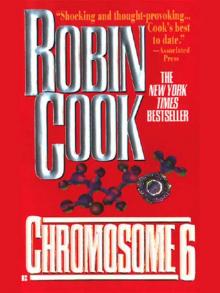 Chromosome 6
Chromosome 6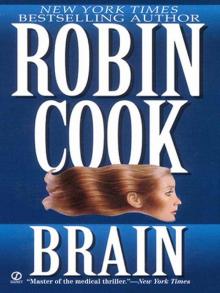 Brain
Brain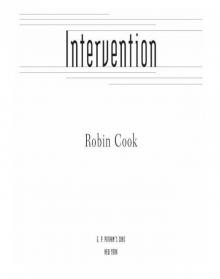 Intervention
Intervention Invasion
Invasion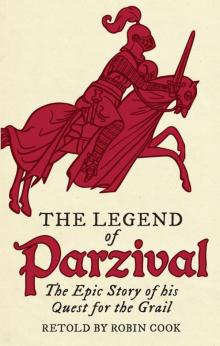 The Legend of Parzival: The Epic Story of His Quest for the Grail
The Legend of Parzival: The Epic Story of His Quest for the Grail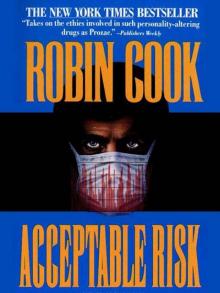 Acceptable Risk
Acceptable Risk Cell
Cell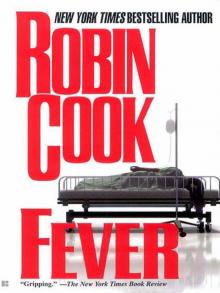 Fever
Fever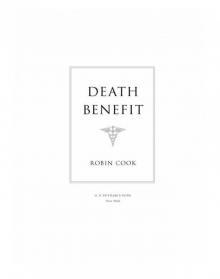 Death Benefit
Death Benefit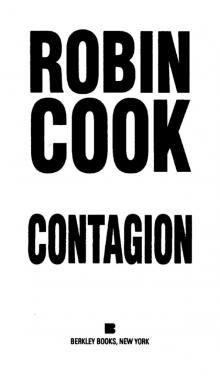 Contagion
Contagion Mindbend
Mindbend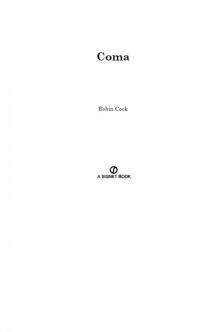 Coma
Coma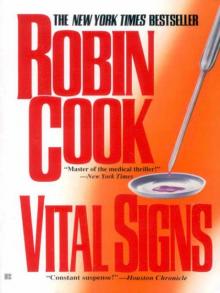 Vital Signs
Vital Signs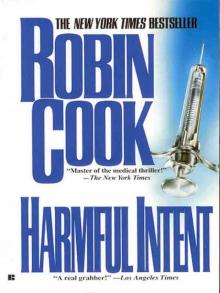 Harmful Intent
Harmful Intent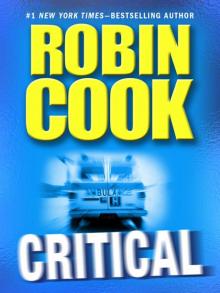 Critical
Critical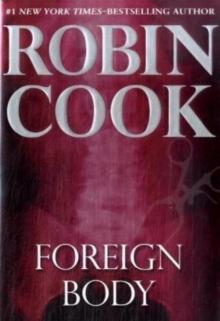 Foreign Body
Foreign Body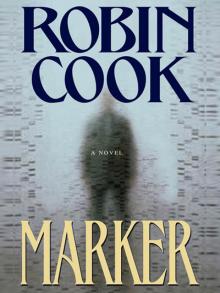 Marker
Marker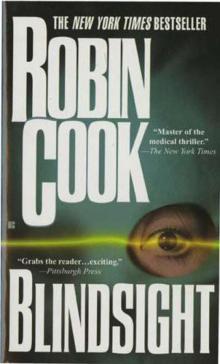 Blindsight
Blindsight Terminal
Terminal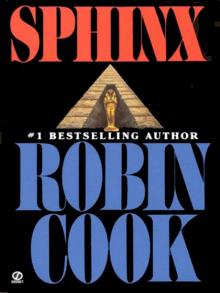 Sphinx
Sphinx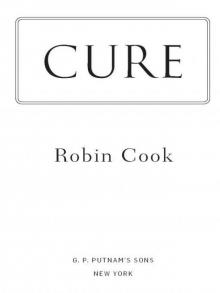 Fatal Cure
Fatal Cure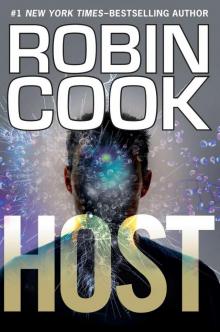 Host
Host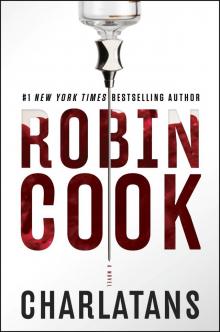 Charlatans
Charlatans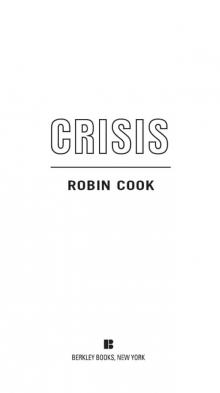 Crisis
Crisis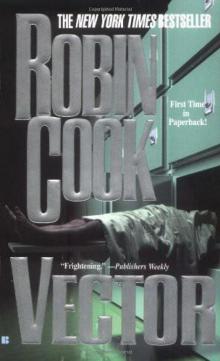 Vector
Vector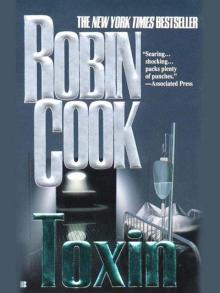 Toxin
Toxin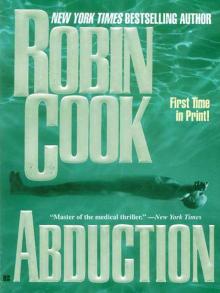 Abduction
Abduction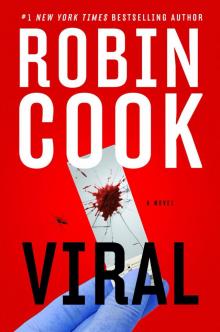 Viral
Viral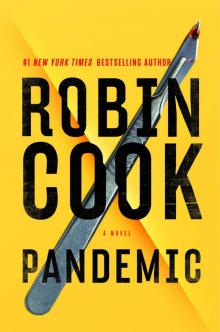 Pandemic
Pandemic Outbreak
Outbreak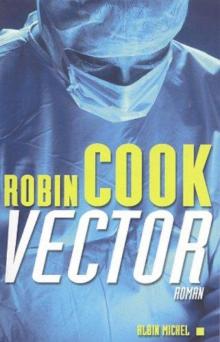 Vector js&lm-4
Vector js&lm-4 Godplayer
Godplayer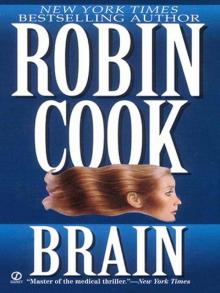 A Brain
A Brain Year of the Intern
Year of the Intern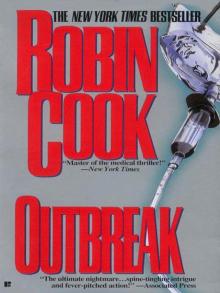 Outbreak dmb-1
Outbreak dmb-1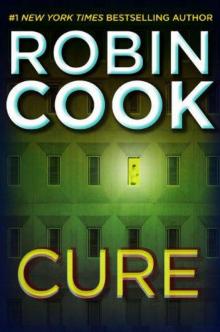 Cure
Cure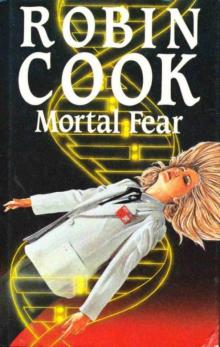 Mortal Fear
Mortal Fear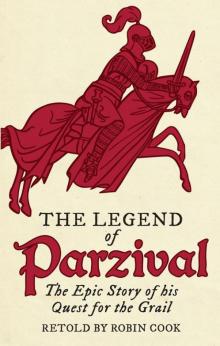 The Legend of Parzival
The Legend of Parzival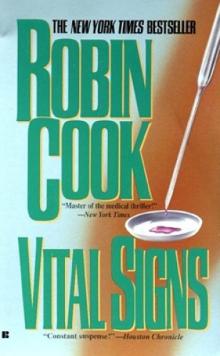 Vital Signs dmb-2
Vital Signs dmb-2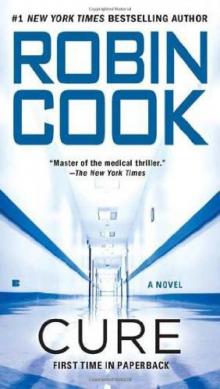 Cure (2010) sam-10
Cure (2010) sam-10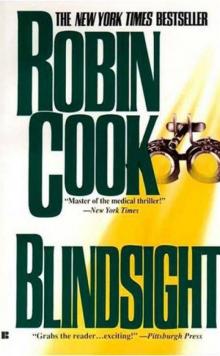 Blindsight sam-1
Blindsight sam-1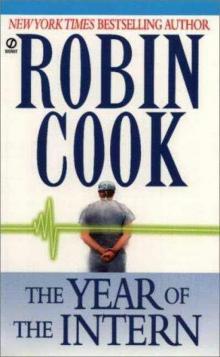 The Year of the Intern
The Year of the Intern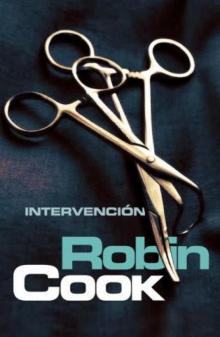 Intervention sam-9
Intervention sam-9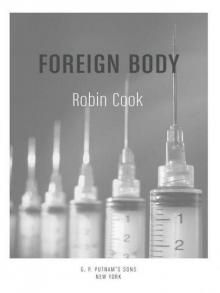 Foreign Body sam-8
Foreign Body sam-8